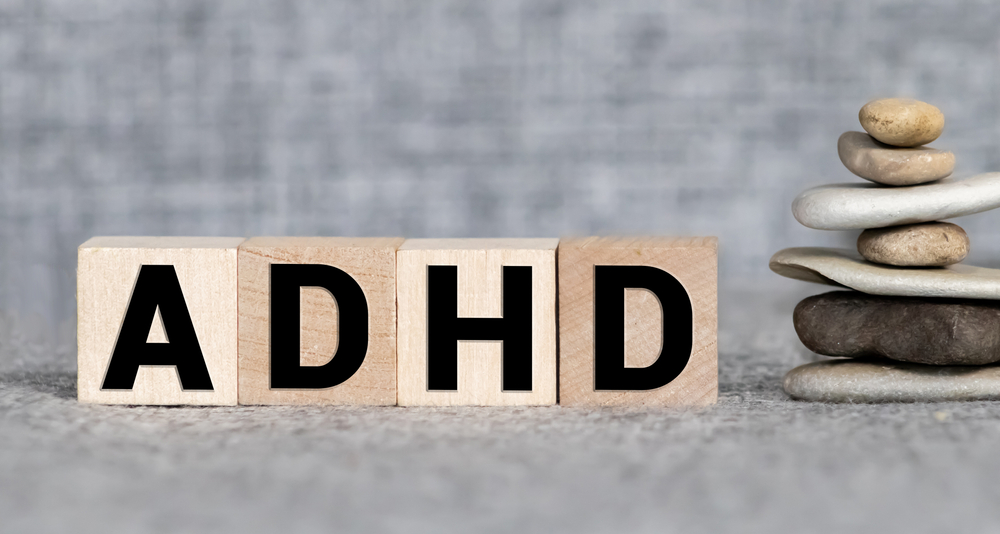ADHD is a condition that affects many people of all ages and backgrounds. However, many people can proceed through their life without even realizing.
There are many levels of ADHD, with some people having more severe symptoms than others. In any case, it is vital to be diagnosed as early as possible, in order to know how to work around the challenges ADHD can present.
With that in mind, in this blog, we will explore the question ‘What are the early signs of ADHD in children?’
The Brain Workshop is a dedicated team of professionals devoting to working with individuals who struggle with learning, in addition to those who want to learn how to learn to the best of their ability.
Our mission is to help turn people’s learning weaknesses into strengths. Regardless of age or profession, our compassionate team is here to provide testing, training tools, patience, and compassion to help our students thrive by realizing their potential.
Is ADHD a broad spectrum?

Yes. ADHD is considered a broad spectrum disorder.
This means that the symptoms and their severity can vary widely from person to person. Some individuals may primarily experience inattention, while others might exhibit more hyperactive and impulsive behaviors. Additionally, the impact of ADHD on daily life can range from mild to severe.
Understanding this spectrum is crucial for tailoring treatment plans and providing appropriate support to individuals with ADHD.
The types of ADHD
ADHD is generally classified into three primary subtypes:
- Inattentive ADHD (ADHD-I): Primarily characterized by difficulties with focus, attention, and organization. Individuals with this subtype may be easily distracted, forgetful, and struggle to complete tasks.
- Hyperactive-Impulsive ADHD (ADHD-HI): Dominated by symptoms of hyperactivity and impulsivity. Children with this subtype often fidget, talk excessively, and have trouble waiting their turn.
- Combined ADHD: This is the most common type, encompassing a combination of inattentive and hyperactive-impulsive symptoms. Individuals with combined ADHD exhibit a mix of both sets of behaviors.
It’s important to note that these are general categories, and many individuals with ADHD may present with a unique combination of symptoms that don’t fit neatly into one subtype.
Difficulties Caused by Undiagnosed ADHD
Undiagnosed ADHD can lead to significant challenges in various areas of life:
- Academic Struggles: Difficulty concentrating, staying organized, and completing tasks can hinder academic performance.
- Social Difficulties: Challenges with impulsivity, hyperactivity, and inattention can impact relationships with peers and adults.
- Low Self-Esteem: Persistent struggles can negatively impact self-confidence and self-worth.
- Behavioral Problems: ADHD symptoms can be misinterpreted as defiance or laziness, leading to disciplinary issues.
- Increased Risk of Other Issues: Undiagnosed ADHD can increase the risk of developing conditions like anxiety, depression, and substance abuse.
- Occupational Challenges: Difficulties with focus, organization, and time management can impact job performance and career advancement.
Early diagnosis and intervention can help individuals with ADHD develop coping strategies and access appropriate support, improving their overall quality of life.
What is the cause of ADHD?
While the exact cause of ADHD remains unknown, research suggests several contributing factors:
- Genetics: ADHD often runs in families, indicating a strong genetic component.
- Brain Structure and Function: Studies have shown differences in brain structure and activity in individuals with ADHD, particularly in areas related to attention, impulsivity, and reward.
- Neurotransmitters: Imbalances in neurotransmitters, such as dopamine and norepinephrine, may contribute to ADHD symptoms.
- Environmental Factors: While less common, factors like exposure to toxins during pregnancy or early childhood, premature birth, or low birth weight have been linked to an increased risk of ADHD.
It’s important to note that ADHD is a complex condition, and the exact cause likely involves a combination of these factors for each individual.
Can ADHD be misdiagnosed?
Yes. Unfortunately, in some instances, it can be misdiagnosed. The symptoms of ADHD often overlap with other conditions, making it challenging to pinpoint a correct diagnosis.
Conditions like anxiety, depression, bipolar disorder, learning disabilities, and sleep disorders can share similar characteristics. Additionally, factors such as age, gender, and cultural background can influence the presentation of symptoms, further complicating the diagnostic process.
It’s crucial to undergo a thorough evaluation by a qualified mental health professional to accurately determine the underlying cause of symptoms.
What are the early signs of ADHD in children?

ADHD (Attention Deficit Hyperactivity Disorder) can be challenging to identify in young children, as many of the behaviors can seem like normal childhood exuberance. However, there are some key signs to watch for.
Inattention
- Short attention span: Difficulty focusing on tasks or activities.
- Easily distracted: Easily drawn away from what they’re doing.
- Forgetful: Often loses things or forgets daily routines.
- Avoids tasks requiring sustained mental effort: May dislike schoolwork or homework.
- Seems to not listen when spoken to directly.
Hyperactivity and Impulsivity
- Fidgeting: Constantly tapping, tapping feet, or squirming.
- Restlessness: Difficulty sitting still, especially in calm settings.
- Excessive talking: Talking nonstop, often blurting out answers.
- Impulsivity: Acting without thinking, interrupting others, or taking risks without considering consequences.
- Difficulty waiting their turn.
It’s important to remember that these behaviors are common in many children. If you’re concerned about your child’s development, it’s essential to consult with a pediatrician for a proper evaluation. Early identification and intervention can make a significant difference in a child’s life.
How is ADHD diagnosed?
Diagnosing ADHD involves a comprehensive evaluation. There’s no single test to confirm it; instead, healthcare professionals rely on a combination of methods:
- Behavioral Observations: Professionals observe the child in various settings (home, school, and clinic) to assess symptoms.
- Parent and Teacher Input: Information gathered from parents, teachers, and other caregivers is crucial for understanding the child’s behavior patterns.
- Medical Evaluation: A physical exam helps rule out other medical conditions that might cause similar symptoms.
- Psychological Evaluation: A detailed assessment to evaluate cognitive functions, emotional state, and social skills.
Important Note: It’s crucial to remember that ADHD symptoms can overlap with other conditions. A thorough evaluation helps differentiate ADHD from other potential causes.
Depending on where you are from, the process of diagnosing ADHD may be different, but you should always endeavor for an official assessment from a legally recognized organization that specializes in the field.
Can ADHD be treated?
Yes. Treatment for ADHD typically involves a combination of medication and behavioral therapy. But will vary on an individual basis.
Medication:
Stimulants are the most commonly prescribed medication for ADHD. They work by increasing levels of certain neurotransmitters in the brain. Non-stimulant medications and antidepressants may also be considered in some cases.
Behavioral Therapy:
This teaches individuals with ADHD strategies for coping with symptoms. Cognitive-behavioral therapy (CBT) is often used to help manage impulsivity and improve problem-solving skills. Parent training and education are essential for supporting children with ADHD.
Other Interventions:
- Educational accommodations: These can help children with ADHD succeed in school.
- Lifestyle changes: Regular exercise, a healthy diet, and adequate sleep can improve ADHD symptoms.
- Support groups: Connecting with others who have ADHD can provide emotional support and practical advice.
It’s important to note that the best treatment plan is individualized and may vary depending on the severity of symptoms, age, and other factors. A healthcare professional can help determine the most appropriate treatment approach.
Train your brain today

If you are looking to optimize your learning potential, with the guidance of seasoned professionals with a wealth of experience, The Brain Workshop is here to help.
With courses available online and more, feel free to get in contact with us to see how we can help you today. Simply click here to get in touch.
In this blog, we hope to have addressed the question ‘What are the early signs of ADHD in children?’ whilst providing supplementary information, in addition to the vital services that we offer.
Contact Number:
+9714 24 34 620
Email:
info@thebrainworkshop.com
Address:
Office 216,
Apex Atrium Building,
Motor City
P.O.Box :
215578 Dubai, UAE






